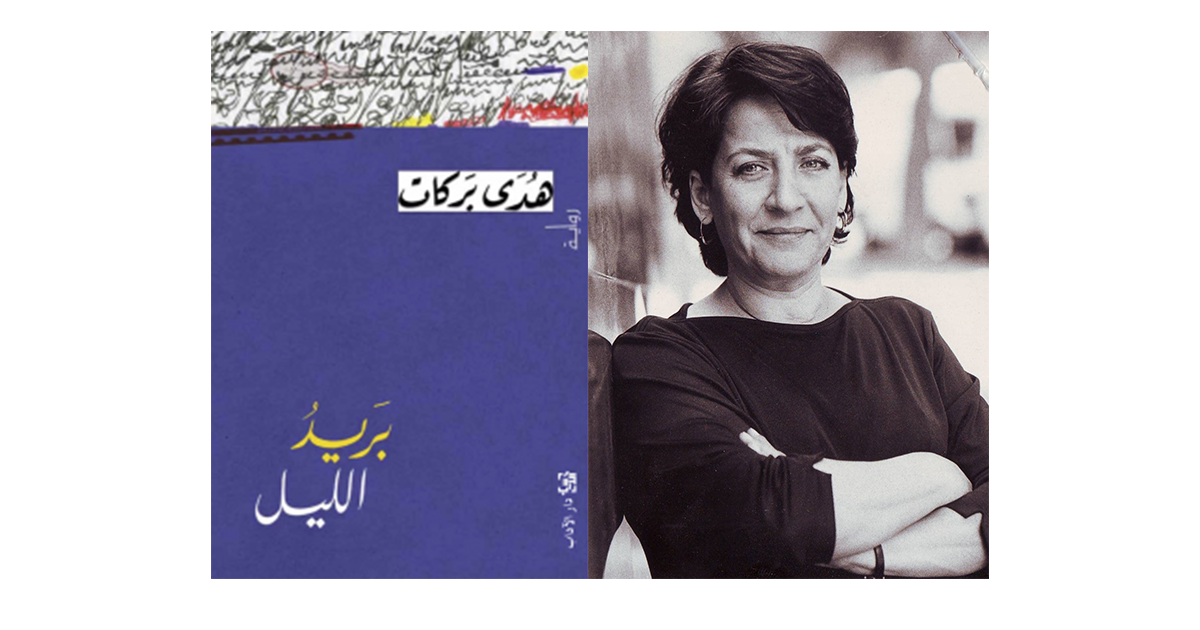Hoda Barakat wins 2019 International Prize for Arabic Fiction
23/04/2019

The Night Mail by Hoda Barakat was tonight, Tuesday 23 April 2019, announced as the winner of the 12th International Prize for Arabic Fiction (IPAF).
The novel, published by Dar al-Adab, was named as this year’s winner by the Chair of Judges, Charafdine Majdouline. Barakat was presented with her award at a ceremony held at the Fairmont Bab Al Bahr in Abu Dhabi.
In addition to winning USD $50,000, funding will be provided for the English translation of The Night Mail, and Barakat can expect an increase in book sales and international recognition. The English translation rights have already been sold and Oneworld Publications in the UK will publish Barakat’s winning book as The Night Post in 2020.

The Chair of Judges, Charafdine Majdouline, said:
“The Night Mail is a highly accomplished novel that stands out for its condensed economy of language, narrative structure, and capacity to convey the inner workings of human beings. By choosing to use techniques well-known in novel writing, Barakat faced a challenge, but she succeeded in creatively innovating within the tradition to successfully convince the reader.”
Professor Yasir Suleiman, Chair of the Board of IPAF Trustees, commented:
“Tightly structured, Hoda Barakat’s novel punches above its word count, turning brevity into a virtue. Using an epistolary structure to deal with displacement and its effects on the refugee experience, the novel exposes us to the precarious nature of human existence in a world in drift. The protagonists’ search for a common thread unites and separates them with equal cruelty. An intense and disciplined novel, The Night Mail will outlive the worlds that animated it. It is destined to speak to readers in multiple tongues because of the intensely human condition it evokes.”
The Night Mail tells the stories of letter writers. The letters are lost, like the people who have penned them, but each is linked to another and their fates are woven together, like those of their owners. The writers are foreigners, either immigrants by choice or forced by circumstance to leave their countries; exiled and homeless, orphans of their countries with fractured destinies. The novel’s realm is — like the times we live in — one of deep questioning and ambiguity, where boundaries have been erased, and old places and homes lost forever.
Barakat is a Lebanese novelist, who was born in Beirut in 1952. She has worked in teaching and journalism and currently lives in France. Barakat has published six novels, two plays, a book of short stories and a book of memoirs. She received the ‘Chevalier de l’Ordre des Arts et des Lettres’ in 2002 and the ‘Chevalier de l’Ordre du Mérite National’ in 2008. Her novels include: The Stone of Laughter (1990), Disciples of Passion (1993), The Tiller of Waters (2000) which won the Naguib Mahfouz Medal for Literature in that year, and My Master and my Lover (2004). Her fifth novel, The Kingdom of This Earth (2012), reached the IPAF longlist in 2013. In 2015, she was a finalist for the Man Booker International Prize, given (at that time) every two years to honour a writer’s overall contribution to fiction on the world stage. Barakat has featured in English in Banipal magazine on several occasions including the publication of excerpts from A Tiller of Water in autumn 2009.
After her shortlisting, Hoda Barakat wrote in an exclusive interview for IPAF:
“I chose [the novel’s] final form when scenes of migrants fleeing their countries had penetrated my imagination. Those people who have lost their homes and are scattered over the earth ... They board boats of death and the world doesn’t want to look at them, other than as an unwanted mass, or a virus threatening civilisation. At this time, we are seeing a regression in the humanitarian dimension of those civilisations, as countries protect themselves by closing their doors. This doesn’t mean that I want Western countries to fling open their borders … I just wanted to listen to the lives of those wandering across the world. I hope that this novel, somehow or other, will have given voice to brittle lives, which are judged by others without understanding them or investigating what brought them to their current state.”
The Night Mail was chosen by the IPAF judges as the best work of fiction published between July 2017 and June 2018 from a shortlist of six novels written by authors from Egypt, Iraq, Jordan, Lebanon, Morocco and Syria. The five shortlisted finalists — Adel Esmat, Inaam Kachachi, Mohammed Al-Maazuz, Shahla Ujayli and Kafa Al-Zou’bi — were also honoured at the ceremony, each receiving USD $10,000. Ahead of the announcement, they took part in an Emirates Writers Union event at the National Theatre in Abu Dhabi, chaired by journalist and writer Aisha Sultan.
Alongside Chair Charafdine Majdouline, a Moroccan critic and academic specialising in Aesthetics, Verbal and Visual Narratives and Comparative Studies, this year’s judging panel features Fowziyah AbuKhalid, a Saudi Arabian poet, writer, academic and researcher in social and political issues; Zulaikha Aburisha, a Jordanian poet, columnist, researcher and human and women’s rights activist; Zhang HongYi, a Chinese academic, translator and researcher; and Latif Zeitouni, a Lebanese academic and literary critic with a specialisation in Narratology.
Barakat will participate in her first public events as the winner of the prize on Wednesday 24 April, the opening day of Abu Dhabi International Book Fair. The Al Multaqa Book Club will welcome her, alongside the five shortlisted finalists, from 2-6pm. This will be followed at 6pm by a special IPAF winner discussion between Barakat and Yassin Adnan, a trustee of the prize. Then the winner will re-join the finalists for the Sea of Culture Foundation Salon at 7pm. The book fair will host two further events with the shortlisted finalists at 4pm on Thursday 25 and 8.30pm on Friday 26 April.
Fulfilling its ambition to increase the international reach of Arabic fiction, the prize provides funding for English translation for its winners. Winning novels published in English last year included Rabai al-Madhoun’s Destinies: Concerto of the Holocaust and Al Nakba (Hoopoe Fiction) and Ahmed Saadawi’s Frankenstein in Baghdad (Oneworld in the UK; Penguin Books in the US), which was shortlisted for the Man Booker International Prize 2018. Also available in English are Bahaa Taher’s Sunset Oasis, Youssef Ziedan’s Azazeel, Abdo Khal’s Spewing Sparks as Big as Castles, Mohammed Achaari’s The Arch and the Butterfly, Saud Alsanousi’s The Bamboo Stalk and Raja Alem’s novel The Dove’s Necklace.
This year sees the publication in English of several novels recognised by the prize, including Mahmoud Shukair’s Praise for the Women of the Family (shortlisted in 2016), translated by Paul Starkey, published by Interlink and out now; Ismail Fahd Ismail’s The Old Woman and the River (shortlisted as Al-Sabiliat in 2017), translated by Sophia Vasalou and published next month; Sinan Antoon’s The Book of Collateral Damage (longlisted in 2017 as al-Fihrist), translated by Jonathan Wright and published by Yale University Press in May; George Yaraq’s Guard of the Dead (shortlisted in 2016), translated by Raphael Cohen, and Ibrahim Abdelmeguid’s Clouds over Alexandria (longlisted in 2014), translated by Kay Heikkinen, both published by Hoopoe in May; Dima Wannous’ The Frightened Ones (shortlisted in 2018), translated by Elisabeth Jaquette and published by Harvill Secker in July.
Interlink has acquired the rights to publish Shahla Ujayli's 2019 shortlisted novel Summer with the Enemy and the translation is underway, with the book due for publication in 2020.
The International Prize for Arabic Fiction is an annual literary prize for prose fiction in Arabic. It is sponsored by the Department of Culture and Tourism – Abu Dhabi (DCT Abu Dhabi) and is run with the support, as its mentor, of the Booker Prize Foundation in London.
